Click here to Download the full Report in English
1. Executive Summary
There were 38 incidents reported during this month of June, reporting more than one incident per a day. This report was prepared mainly based on the information reported in mainstream and social media, but in few cases through other sources.
The context in this month more or less connected with the upcoming Parliamentary Election. The Fundamental Rights petition filed by opposition parties and civil society activists about postponing election was rejected by the Supreme Court. Election commission announced August 5th as the new election date. The Presidential Task Forces were subjected to criticisms by activists, civil society and opposition party politicians.
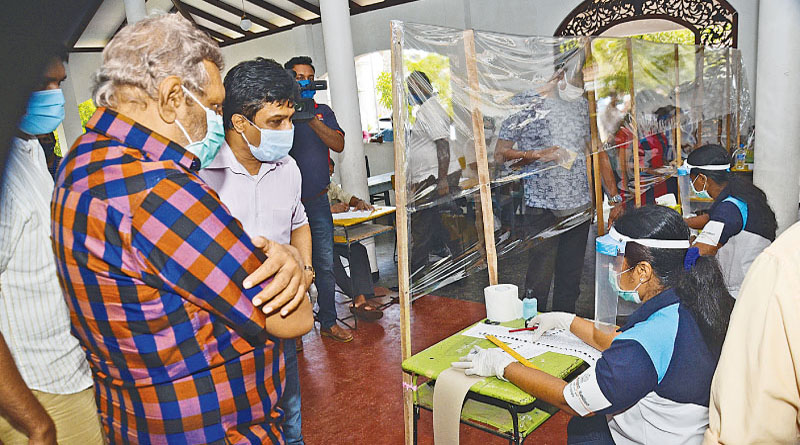
At least two court orders were issued banning protests. In one case, 53 protesters were arrested and some were assaulted. A lawyer who questioned the arrest of protestors was also arrested. Health Minister and state officials made problematic statements calling for restricting protests due to COVID19, though this was denied by the government’s Director General of Health Services.
Government blocked access to a Tamil media website. CID seized a laptop used by an exiled journalist. A citizen journalism website had to shut down its whatsapp groups due to digital security risks they faced. The president advised a state media institution to promote his previous manifesto. Buddhist monks made a complaint to the CID asking to take action against a social media commentator.
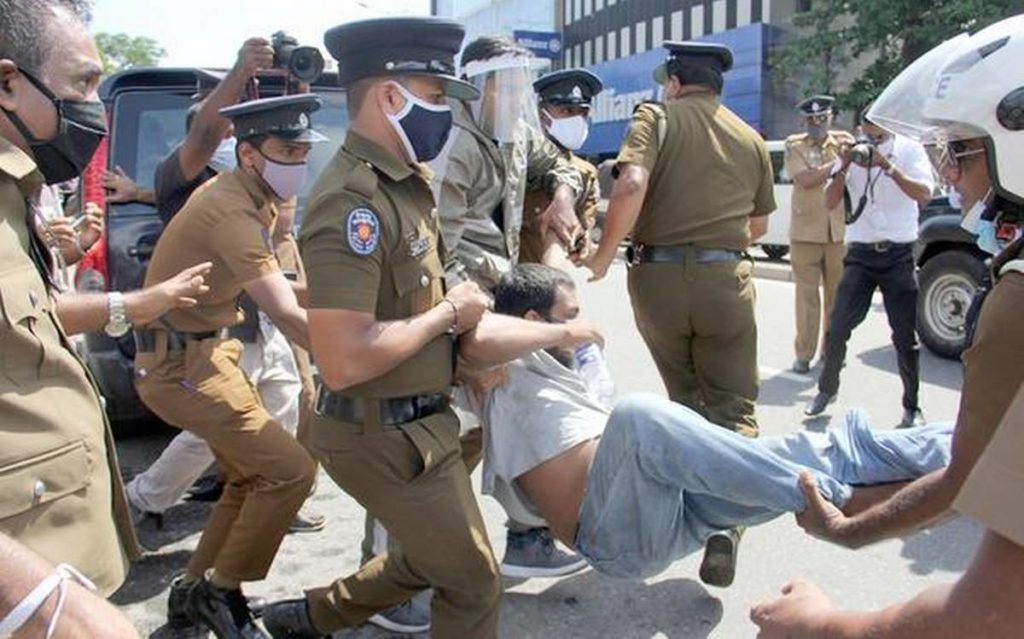
A trade unionist was brutally assaulted and killed in the premises of a leasing company. Another civil society activist reported that he received death threats in social media and a previous complaint he made regarding threats he received remains uninvestigated. A newspaper accused a former UN high commissioner had participated in an LTTE event. Intelligence head sent a letter of demand against an international human rights activist for alleged defamation. Twitter handle of a campaign advocating for release of a detained activist was temporarily restricted.
Presidential Commission of inquiry (PCoI) issued summons to AG department in a manner that could have impact on ongoing legal cases. False accusations were made against Election commission and its members. One minister called public to surround the EC premises. Nationalist newspapers accused a Tamil EC member as an LTTE supporter, despite him having faced threats from the LTTE. PM Mahinda Rajapakse making a special speech undermined the parliamentary act criminalizing enforced disappearances, powers of the Office of Missing Persons, Office of Reparations and advocated for non-investigation of alleged war crimes and cases of disappearances. In two incidents bank officials were physically assaulted by the customers in the context that COVID19 financial concessions failed to become realities on the ground.
Two left leaning candidates who oppose the government in Jaffna district alleged that they were visited and questioned by military intelligence officers. A lawyer was not allowed to get an affidavit from an eyewitness of a murder that occurred in a prison. Investigations were held against cricketers for alleged match fixing after they criticized a government project based on an accusation made by a minister.
Hejaaz Hizbullah – the arrested attorney-at-law, and Ramzy Razeek arrested social media commentator still remains behind the bars. An identification parade scheduled to be held against Hizubullah was dismissed after magistrate learnt that the children who were wintnesses have been allegedly threatened by Police[1]. Ramzy Razeek was further remanded. By the end of June he has been in jail for more than 80 days. The daughter of late journalist Lasantha Wickrematunge wrote a letter to the Police Commission against the appointment of SSP Prasanna Alwis as the head of the CID in last May. He has been accused of concealing evidence related to Lasantha Wickrematunge murder. Two FR petitions challenging former President’s decision to pardon Bodu Bala Sena (BBS) General Secretary Ven. Galagoda Aththe Gnanasara Thera were refixed for support by the Supreme Court.
4. Major incidents and trends related to dissent
4.1 Repression of freedom assembly
At least two court orders were issued banning the protests. Attendees to a memorial event in the North were obstructed by the Police. 53 protesters who participated in the “Black lives matter” protest in front of the US embassy Colombo were assaulted and arrested. A lawyer who questioned the arrest of protestors were also arrested. Health Minister Wanniarachchi, Police media spokesperson and Defense Secretary made statements that allowing protests could be problematic due to COVID-19 health concerns, while Director General of Health Services Dr. Anil Jasinghe refuted such claims and said that protests could be carried out adhering to health guidelines issued.
4.2 Repression of freedom of expression

Access to a Tamil media website has been blocked since 28th May. CID checked the house of an exiled journalist and seized the laptop she used with a court warrant. The CID had also visited her house at least two times without a warrant previously. Due to suspicious whatsapp messages, Groundviews – a popular citizen journalism website shut down its whatsapp chat groups which have been in operation for several years. During a progress review meeting of a state television held in PM’s official residence, the President asked them to promote President’s manifesto presented during the last election, implying the channel should not promote views that would be critical of different. Buddhist monks made a complaint to the CID asking to take action against a social media commentator for allegedly insulting Buddhism and hurting the feelings of Buddhists as he had published facebook posts claiming Buddhism is a development of Jainism.
4.3 Repression of civil society and trade union activists
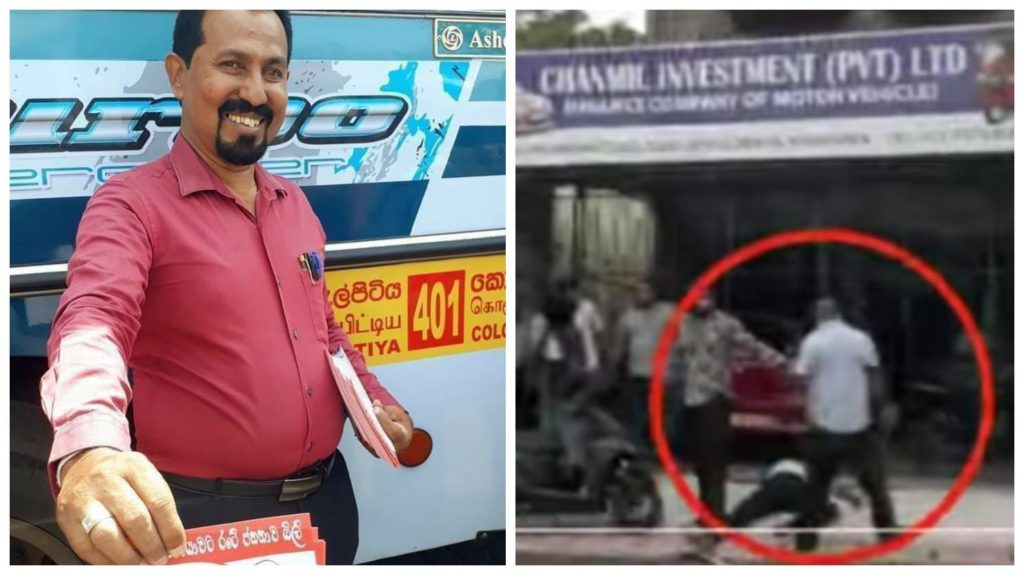
A trade unionist of trishaw drivers was brutally assaulted and killed in the premises of a leasing company, after he advocated to get COVID-19 concessions for one of their trade union members. Another civil society activist reported that he received death threats in social media when he shared a video criticizing murder of the trade unionist. He also said that the complaint he made regarding threatening phone calls in last month has not yet been investigated by the Police. A newspaper published a report that former UN High commissioner Pillai has attended a LTTE commemoration in South Africa dressed in a saree representing the colors of LTTE flag, implying she is a LTTE supporter. Director of State Intelligence services Suresh Sallay sent a letter of demand to Yasmin Sooka- director of ITJP (an organization that has bene making critical reports about successive governments) for allegedly making defamatory remarks about him. The twitter handle advocating justice for an arrested lawyer was temporarily restricted.
4.4 Reprisals faced by state officials
Presidential Commission of inquiry (PCoI) on political victimization issued summons to AG department officials regarding an ongoing corruption case at a high court, based on a complaint made by one of the key accused.
One minister and a former minister of the ruling government made problematic public statements regarding the election commission. The minister called public to surround the election commission’s premises as the chairman of the commission acts according to the wishes of the opposition, by not allowing all candidates to display their numbers and images at party offices. The former minister accused the Election commissioner Hoole for acting according to the agenda of the diaspora. The nationalist newspapers also made similar accusations. An unnamed correspondent writing to an English language newspaper accused Election Commissioner Hoole for engaging in fundraising for LTTE in the past. Another Sinhala language newspaper accused Hoole of working against the government with the support of NGOs as the state intelligence have found. These accusations seemed to have ignored common knowledge and media reports about Hoole having faced threats from the LTTE and seem to have been fabricated with the expectation of undermining the work of EC.
PM Mahinda Rajapakse making a special speech undermined the powers of the Office of Missing Persons and advocated for non-investigation of alleged war crimes and cases of disappearances. He also critiqued the parliamentary acts criminalizing enforced disappearances and establishing an office for reparations.
At least in two incidents bank officials in government banks were physically assaulted by the customers. A statement issued by a Bank employees union stated there are many other incidents reported countrywide where bank employees have been threatened by the customers. This occurred in the context that COVID19 financial concessions which the government claimed to have been given failed to make into a reality.
A suspect threatened a high court judge with death. Two navy personnel were allegedly assaulted by fishermen involved in illegal fishing. A hospital worker was assaulted by a person who accompanied a patient for advising to wear a face mask.
4.5 Other incidents
Two candidates of Socialist Equality Party (SEP) in Jaffna district including the district leader alleged that they were questioned by military intelligence officers. Tamil National People’s Front (TNPF) alleged that its Mullaitivu district organizer was detained by the Police on false grounds.
Lawyer Senaka Perera – the President of the Committee for Protecting the Rights of Prisoners was not allowed to get an affidavit from a prison inmate who was an eyewitness of a murder of another inmate by prison authorities.
Investigations were held against cricketers after a minister accused them of engaging in match fixing 9 years ago, after they recently criticized the government project of building the largest cricket playground in Sri Lanka. Some expressed suspicion on the death of a retired senior official, a writer, and a whistleblower that exposed a large-scale corruption case whose body was found at a public place with no CCTV camera footage. However the close family members, and colleagues expressed no doubts and accepted it as a suicide.
A presidential task force (PTF) was appointed “to build a secure country, disciplined, virtuous and lawful society” providing broad powers, and all the members of the PTF were military, ex-military and police officers. Same as the previous months, President issued the monthly gazette calling armed forces providing them with powers to intervene in civilian matters, which had led to more military personnel on roadside and fears for government critiques.
6. Statistical Analysis
| Location | Number | Percentage |
| Colombo | 16 | 42% |
| Kalutara | 2 | 5% |
| North and East | 5 | 13% |
| Other areas | 2 | 5% |
| Not Applicable | 9 | 24% |
| Not mentioned | 1 | 3% |
| online | 3 | 8% |
| Total | 38 | 100% |
Table 1: Geographical area of the incidents
There were 38 incidents relating to dissent included in this report, reporting more than 1 incident per day. The highest number of them (42%) was reported from the Colombo District while 5% of incidents were also reported from Kalutara District. (These are two of the three districts in the Western province). Secondly 13% incidents were reported from North and East provinces. Another 5% were reported from other areas. The geographical location was considered not applicable in 24% of incidents, which were not limited to one specific geographic area. 8% of incidents were online. In one case (3%), the geographic area was not mentioned.
| Ethnicity | Number | Percentage | Gender | Number | Percentage | |
| Sinhala | 15 | 56% | Male | 19 | 79% | |
| Tamil | 11 | 41% | Female | 5 | 21% | |
| Muslim | 1 | 4% | Other | 0 | 0% | |
| Total | 27 | 100% | Total | 24 | 100% |
Table 2: Gender and Ethnicity of the victims
When ethnicity and gender were considered, only in 27 and 24 incidents respectively ethnicity and gender data were either available or applicable. Where ethnicity is applicable 56% of the victims were Sinhala, 41% were Tamil, and 4% were Muslims. Where gender is applicable, 79% of the incidents were related to male victims, while 21% were related to female victims.
| Type of victims | Number | Percentage |
| Journalists | 5 | 13% |
| Civil Society Activists | 4 | 11% |
| Protestors | 3 | 8% |
| State officials | 12 | 32% |
| Lawyers | 2 | 5% |
| Politicians | 2 | 5% |
| Other | 5 | 13% |
| Not applicable | 5 | 13% |
| Total | 38 | 100% |
Table 3: Types of victims
Then we looked at the types of the victims. 32% of them were state officials or institutions. 13% were journalists. 11% were civil society activists. In 8% of cases, the protestors were the victims. 5% of incidents were relating to lawyers, another 5% were relating to Politicians. 13% of incidents belong to the other category, while in another 13% of incidents category of victim was considered not applicable as they were mainly legal, policy, institutional actions which could have broad impact on multiple parties.
| Type of violation | Number | Percentage |
| Killings and suspicious deaths | 2 | 5% |
| Physical attacks | 5 | 13% |
| Arrests | 3 | 8% |
| Verbal or written threats and insulting statements | 6 | 16% |
| Death threats | 2 | 5% |
| Online security issues and censorship | 3 | 8% |
| Court order | 2 | 5% |
| Investigation | 1 | 3% |
| Visits, inspection and questioning | 3 | 8% |
| Intimidation | 1 | 3% |
| Legal, institutional and policy changes and undue influences on state institutions | 8 | 21% |
| Others | 2 | 5% |
| Total | 38 | 100% |
Table 4: Type of violations
When types of violations were considered the highest percentage 21% was legal, institutional and policy changes and undue influences on state institutions. Secondly there were 16% of incidents about verbal and written threats and insulting statements. Thirdly there were physical attacks in 13% of incidents and another 8% of incidents were related to visits, inspection and questioning. Another 8% were related to online security issues and censorship. Another 8% were arrests. 5% of the incidents (two incidents) were relating to court orders that banned protests. Another 5% were related to death threats. Another 5% were related to killings and suspicious deaths.
| Alleged Perpetrator/ Responsible party | Number | Percentage |
| Military and Police | 11 | 29% |
| Government and officers | 6 | 16% |
| Politicians | 6 | 16% |
| Business persons | 1 | 3% |
| Court | 2 | 5% |
| Unknown | 1 | 3% |
| Others | 11 | 29% |
| Total | 38 | 100% |
Table 5: Type of alleged perpetrator or responsible party When the alleged perpetrator or responsible party was considered 29% of incidents were related to military and police. 16% were related to politicians. Another 16% were related to government authorities or officers. In few incidents, business persons and courts were responsible. Various other parties were involved in 29% of the incidents.
Click here to Download the full Report in English
[1] Identification parade for Hejaaz case withdrawn; case to be taken up 1 July. The morning. Published 25th June 2020. Last accessed 20th July 2020.

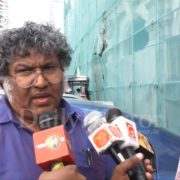
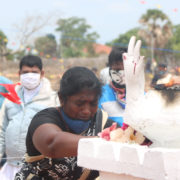
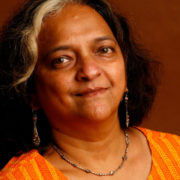
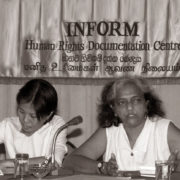
Comments